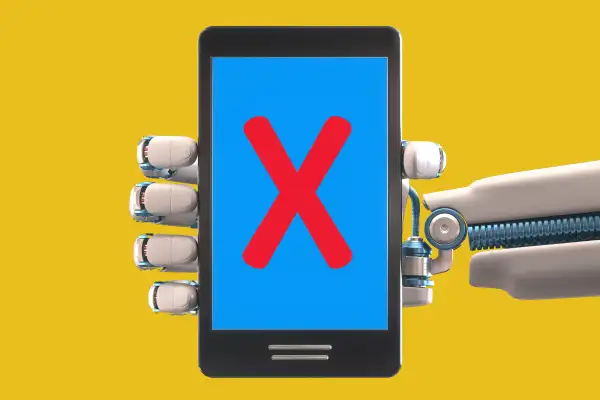Robocalls Have Become an Epidemic. Do These 2 Things Now to Stop Them

How many times a day do you pick up the phone, only to have it be a recording? Or worse, a spam call pushing a sale?
Robocalls have become an epidemic, with roughly 3.4 billion placed nationwide in April alone, according to the YouMail Robocall Index. Those affected are receiving over 10 calls a month, on average.
Robocalls can be broken down into three categories. There are legitimate calls from places like your pharmacy saying your prescription is ready for pick-up. Spam calls from organizations that, at one point, you’ve given your information to (like charities). The final, and potentially most troublesome, are scam calls—illegal calls aimed at defrauding you.
These scam calls are on the rise, with fraudsters using sneaky methods to get you to answer your phone.
According to Nomorobo, a telecom service company behind a robocall blocking app, reported last month they’ve seen an explosion of “neighbor spoofed” type of calls—where robocallers use a fake number that looks similar to a local number near you. These calls used to make up about 2% of all robocalls— and now it’s more than 20%.
So how do you avoid these types of calls?
Make Sure You're Registered
The first step is to make sure you’re on the national Do Not Call Registry. You can register right away or verify that you are on the registry by providing your phone number and email.
Being on the registry generally will not stop scammers, but it will protect you from legitimate businesses from bombarding you with unwanted calls. Additionally, if you receive a robocall that’s trying to sell you something, and you haven’t given them written consent, that’s an illegal call—and you can file a complaint the Federal Trade Commission.
Then Block ‘Em
Whether on a landline or a cell phone, the easiest way to avoid unwanted calls is to not answer. But of course, with schemes like “neighbor spoofing” growing in popularity, that may not work all the time.
So use technology to fight back. In fact, there are hundreds of apps on the market that are aimed at blocking robocalls. But not all apps are created equal. For smartphones, check out Hiya. It's a highly-rated free app that works on both Apple and Android systems.
Those seeking a solution for their landline should check out the aforementioned Nomorobo, a free service that scans calls for you. If it's a legitimate call, it goes through to your number. If not, Nomorobo intercepts the call and hangs up for you. (The mobile app version does cost $1.99 per month though.)
If you’re willing to pay, RoboKiller ($2.99 per month) not only blocks unwanted calls, it goes one step further. Unwanted calls are diverted to RoboKiller’s army of “answer bots,” which keep the scammers and spammers on the line to waste their time and stop them from making more calls. Ethan Garr, RoboKiller’s chief product officer said customers should expect to see at least a 90% reduction in robocalls. The company also says more than 200,00 types of calls are being blocked at any given time.
If you don’t want to download another app, you can manually block numbers on most smartphones. On iPhones, look up your recent calls. At the bottom of the caller information, you’ll see the option to block that number. Various Android models also let you block (or “auto-reject”) numbers from your log of recent calls.
Regardless of how you handle these calls, don’t share your personal information or agree to hand over a credit card.